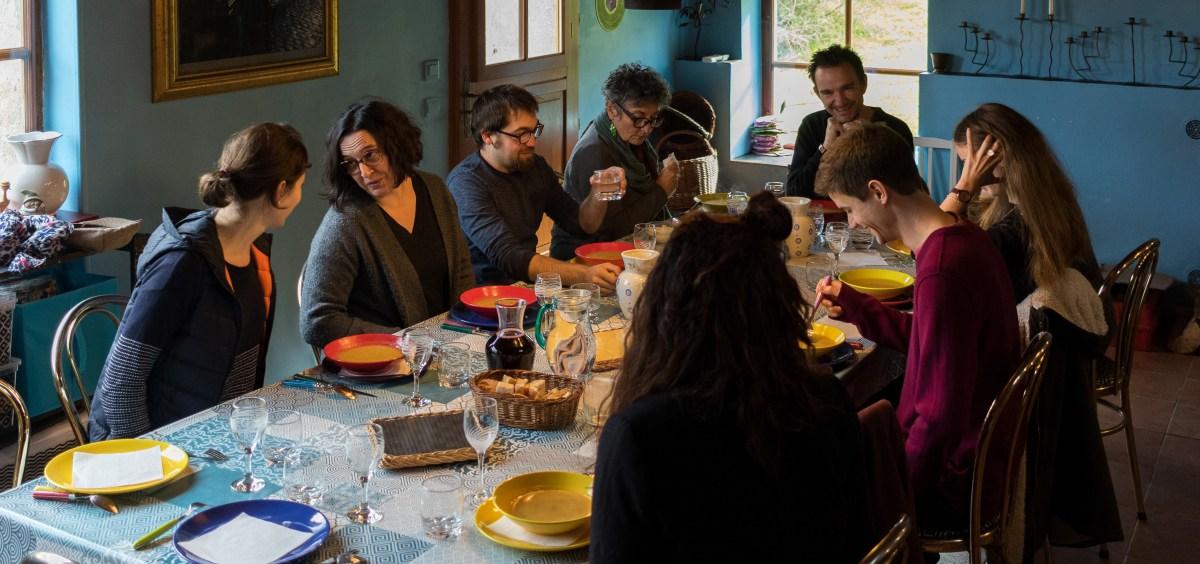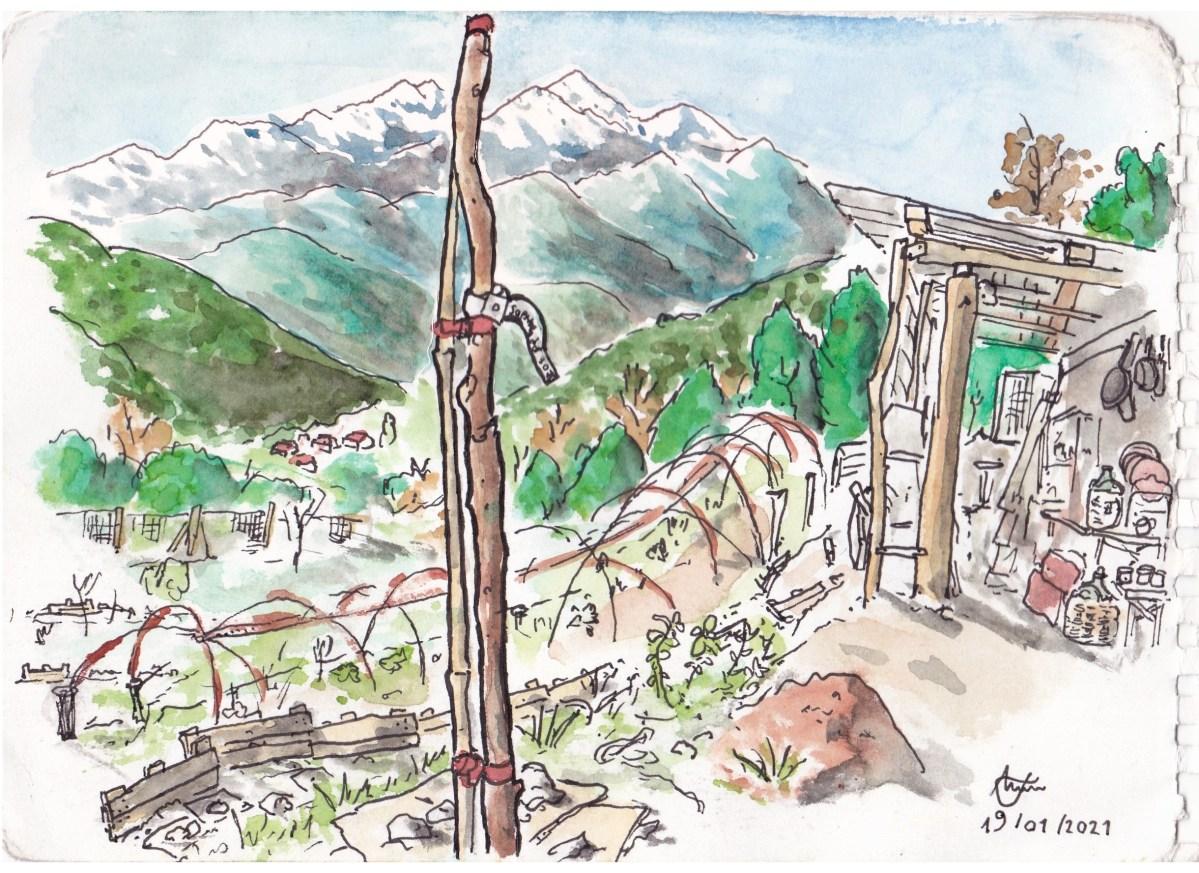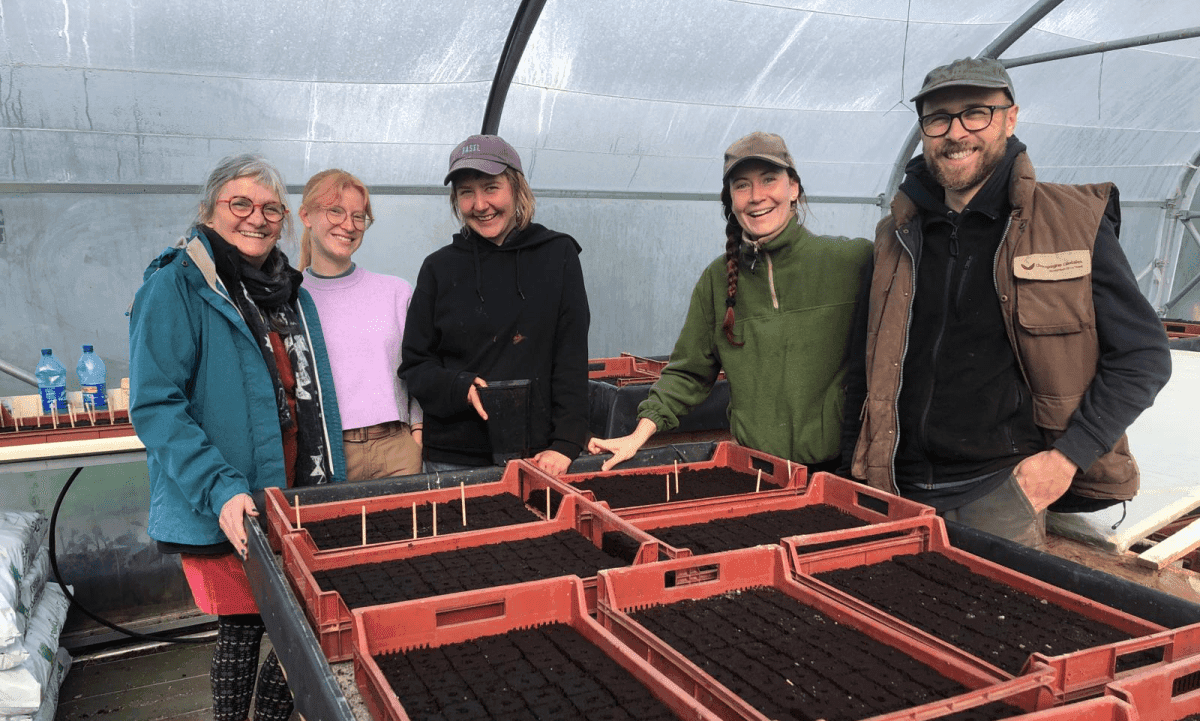
Unspoken Rules: the Do's and Dont's of WWOOFing
WWOOFers and WWOOF hosts share their advice on the 'best practices' of WWOOFing as well as some general guidelines that may not be so obvious to those unfamiliar with the culture. These rules are not written in stone, nor necessarily are spoken outright, but are born of the experiences working on organic farms.
Alice, a French WWOOFer in Montesquiou

“Take initiatives. Have motivation to do things. Anything. Set the table, sweep the floor if you notice it’s dirty. Ask if there is anything more you can do. Don’t always wait to be told what to do every minute but try to be autonomous as much as you can. I’ve WWOOFed at farms where the hosts have so much work and the more you can pitch in without them having to stop and explain, well, it’s a huge help. At one farm in the south of France, it was very autonomous. I got up every morning to feed and care for the animals for example. But it’s different everywhere you go. On that note, I would say a good rule of thumb is to honor the rhythm of your host or better yet, know how to adapt yourself to and follow their rhythm. From beginning to end. At one host's, we had “siesta” until 2 or 3 in the afternoon, and would work after. But with the next host, that wasn’t the case because we ate much later. At every place, it’s a slightly different tempo: meal times, when to shower, work time, work pace, which days are free, and so on.”
Gilles et Christine, biodyanmic and organic wine cultivators in Savoie

"WWOOfing is first and foremost about discovery―not only for the WWOOFers but for us too! They bring us their culture, their knowledge, their eagerness. And we teach them how to cultivate and run a vineyard―everything from the grape harvest to the wine tastings with clients. Openness is at the heart of the philosophy of this exchange, and we love to have our WWOOFers taste local dishes, like escargots, and visit the region. Because we do take our roles as hosts seriously, we expect the same from our WWOOFers. A good rule to respect is that if you make a commitment with a host, keep it! We just have two spots for WWOOFers that in peek season, July and August, are booked; a few times we were stood up by those who had committed to coming and then last minute cancelled. For us, it complicates things for planning and becomes lost opportunities for more serious WWOOFers who want to come. Life happens. There may be an emergency, or you may get sick. But plan your stays with hosts in advance as best you can, and follow through on your word."
Jodi-Lea and Jean-Paul, two Australians with experience WWOOFing in France and Japan

“One thing that stood out when WWOOFing in France is that every farmer’s garden is a sacred area that you don’t work in unadvised! Every host attended to their garden in a completely different fashion and what you think you know about gardening can be all wrong―and we come from a farm background in Australia! One Gardner might be bio-dynamic and go by the phases of the moon, another might go by some other system. We had ones with very straight rows and the farmer would rotate them, and then others that might be a circular permaculture garden. One time, there was this messy garden and we thought we were helping by weeding, but accidentally upset the farmer because he had his own time and system for for pulling weeds! In this case, as a permaculturalist, he left the weeds to act as "shade" for the seedlings, locking in moisture and keeping them from being dried out by the sun. Who knew? Not us! Our rule is: do not touch a French person’s garden for the first time unaccompanied!”
Leni: poet, gardner, and veteran host in Dordogne

"Being a WWOOF host goes back to this old fashioned idea of hospitality. That word has been stolen by the market for hotels, and business and such. However, here in the Périgord, most people still have a real sense of the traditional custom of hospitality which goes right back to the root of hospice, hostel, hospital―it’s about giving care to people who are away from their homes. And that has always been my attitude in welcoming WWOOFers here. As for the exchange between WWOOFers and hosts, I suppose you can say it’s a two way process. There should be no hierarchy like in a top-down system. To make a pun, it’s an organic process! When you go into someone’s home, it’s a very intimate sort of space. Whatever I have given to WWOOFers they have given me so much more back. I can’t say there is any one general rule. My word of advice would be: Be yourself, don’t hesitate to ask questions. Look around, just look around inside the farm, the house, look outside. Really take a deep breath of fresh air, and don’t necessarily come with preconceived ideas about what to expect. Really observe and don’t hesitate to join in and help. Don’t be shy. That is something I have to repeat a lot to WWOOFers because for a kind of security a lot of people bring their own images that they sort of transpose. You’ve made this big gesture to go WWOOFing so be confident in yourself. Look around with the eyes of a child."
Alyssa, an American who WWOOFed in Alsace, Bourgogne and Provence

"Participate as much as you can in the day to day life of your hosts while WWOOFing in France. For foreigners, it’s much more of a unique experience than conventional traveling, like staying in a hostel or in a hotel. Being welcomed in locals’ homes creates a warm and intimate setting―we were treated like family by the people we stayed with! Their sincere hospitality made me want to help my hosts in any way I could to show my deep appreciation. Dive into the work and the relationships with the people you meet without any hesitation, because by being present and engaged, you can open yourself up to life altering changes. In my case, WWOOFing in France has been the most monumental time from my traveling and living abroad; it truly changed my life and how I want to live my life. Working on the farms made me realize how obtainable it is have my own sustainable farm in the future, to grow my own food and have an self-sustaining lifestyle that aligns with my values. It was by talking and spending time with my hosts as much as possible and as they felt comfortable―while working and in my free time―that I learned about alternative lifestyles.”
Louis-Abel, vegetable farmer in Savoie

"The ‘savoir-vivre’, or good manners, is important. At the same time, everyone is different, we all have our own personal values and beliefs, so you can’t ask the same thing of everyone. That being said, what I find favorable among WWOOFers are those who participate in many aspects of our daily life as a family, like wiping down the table after eating, or making a meal from time to time. There cannot be a general rule that applies to everyone, as every WWOOF experience is different. My advice to WWOOFers would be to communicate what they would like to learn; it’s not a job interview! But also good communication between WWOOFer and host is key. What is working? What is not working? It’s a dialogue. Another quality I personally appreciate with WWOOFers' help is spontaneity and autonomy. Finding their own projects to do when they feel inspired or taking over a chore at the farm, like feeding the animals. There’s always something I have to be doing, in-between being a farmer and having a family, I’m always on the go!
Pia, a Lebanese WWOOFer living in Dubai

"I had been romanticizing farm life for a few years and finally decided to try it out. I was a typical city girl in my youth, but now I find myself drawn to nature and it’s raw, abundant beauty. In July of this year, I volunteered for three weeks on a farm in Montendre, next to Bordeaux. The work was relatively easy. I learnt a little bit about permaculture, hand picked Colorado Potato Beetles and beans. I weeded some and helped Kath with the irrigation system. That would be my advice to hosts: be very clear about the work at hand, and have fun teaching. On the farm, Kath had messages placed in different spots about the permaculture way of life. It taught me the twelve design principles. For instance, one sign would say "Integrate rather than segregate," the permaculture principle being that by putting the right things in the right place, relationships develop between those things and they work together to support each other. That was new to me; and it made sense to me."
Lire davantage
Une fois par saison, l'actualité du WWOOFing par email

